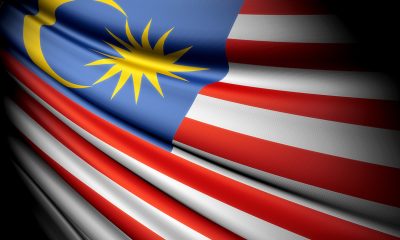World
Out in the world: LGBTQ news from Europe and Asia
Two teenagers sentenced to life in prison for murdering trans teenager in England

UNITED KINGDOM
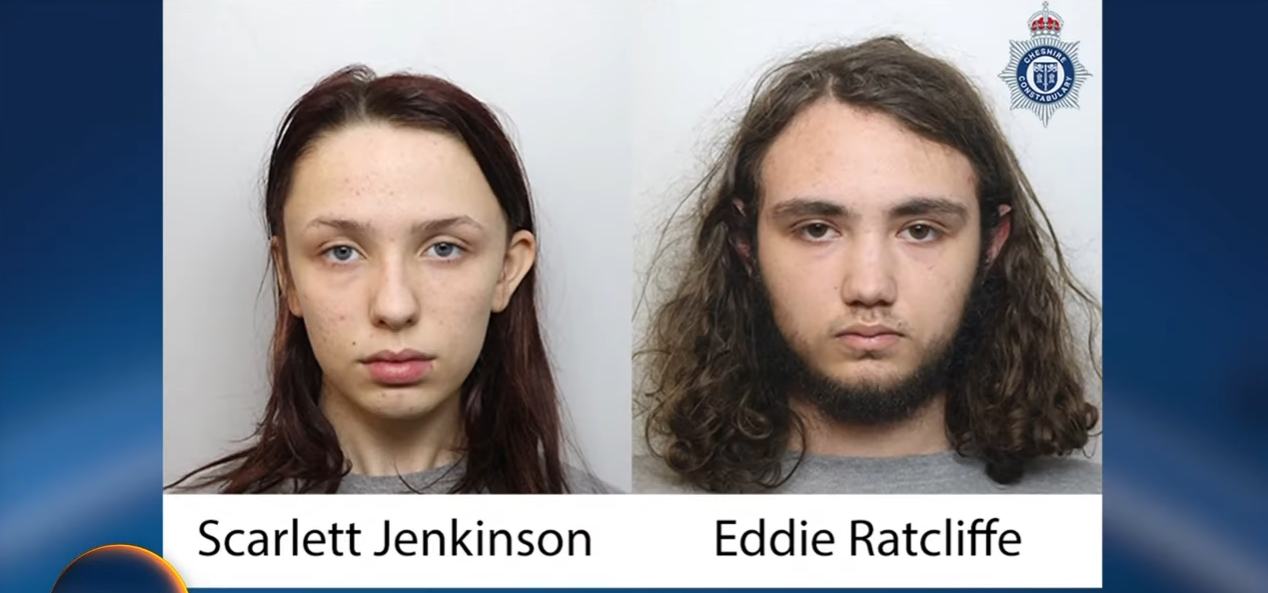
On Friday, the judge presiding over the trial of two teenagers convicted in the brutal stabbing death of transgender teenager Brianna Ghey, a crime that shook northern England, sentenced the pair to life in prison.
Manchester Crown Court Justice Amanda Yip sentenced Scarlett Jenkinson to life in prison with a minimum of 22 years and Eddie Ratcliffe to life with a minimum of 20 years, noting that the pair, both 16, took part in a “brutal, planned murder” that was “sadistic in nature” and motivated by “hostility towards Brianna because of her transgender identity.”
Ghey was a 16-year-old trans girl, TikTok creator and a “beacon of positivity,” according to her friends. She would often film videos set to music while showing off her makeup or walking in a park. It was in one of these parks that her life was taken in February of this year.
In the immediate aftermath of her murder, countless people mourned for her and decried the senseless violence. Her TikToks became makeshift memorials with millions of likes and views.
Many people considered the idea that anti-trans sentiment and rampant transphobia in the U.K. may have played a role in her murder.
PinkNewsUK reported that as he read his victim impact statement at Manchester Crown Court, Brianna’s father, Peter Spooner, described Jenkinson and Ratcliffe as “pure evil.”
“Now my world has been torn apart. Justice may have been done but no amount of time in prison will be enough for these monsters,” he said.
“I cannot call them children because that makes them sound naive or vulnerable, which they are not — they are pure evil. Brianna was the vulnerable one.”
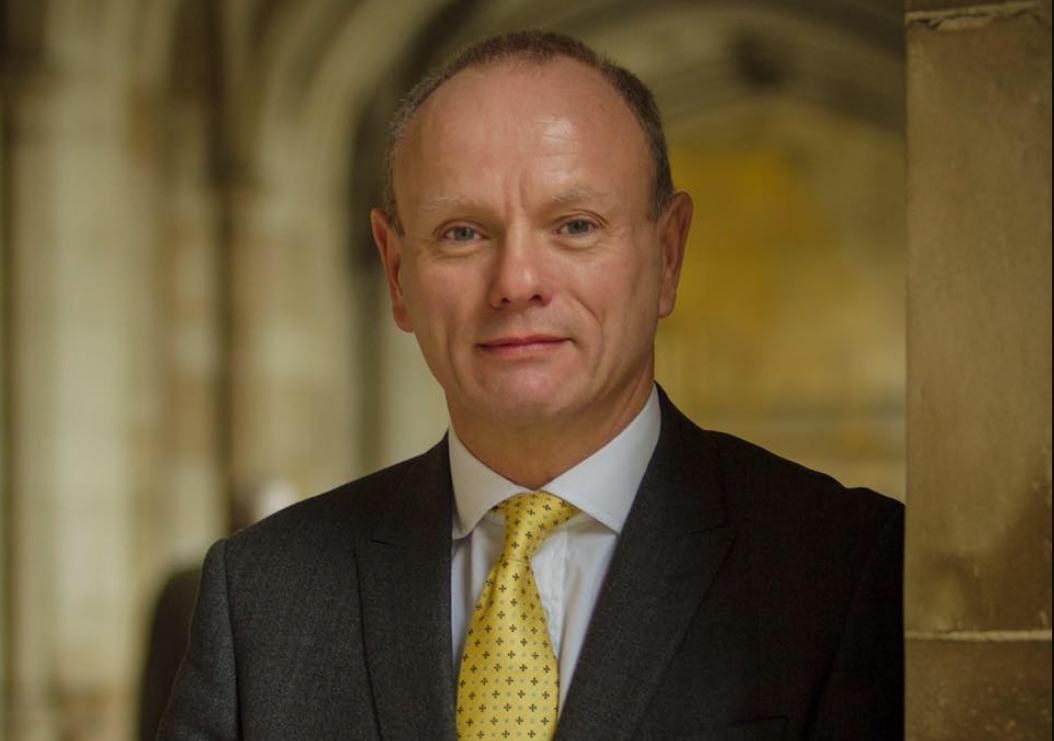
British Conservative Party politician Michael Freer announced he has decided to step down at the next general election after an arson attack on his constituency office and receiving death threats.
PinkNewsUK reported that the 63-year-old Tory, who currently also serves as Parliamentary Under Secretary of State for Courts and Legal Services, has faced a series of death threats and was even targeted by Ali Harbi Ali, the man who murdered Southend West MP David Amess in 2021.
Freer revealed that he and his staff began wearing stab vests at public events after they learned Ali had watched his Finchley office before stabbing Amess at a constituency surgery. An arson attack in December was the “final straw.”
Speaking to Sky News, Freer said: “There comes a point when the threats to your personal safety become too much. I was very lucky that actually on the day [of Ali’s attempted attack] I was due to be in Finchley, I happened to change my plans and came into Whitehall.
Otherwise, who knows whether I would have been attacked or survived an attack. He said he came to Finchley to attack me.”
There have been other threats the MP said including from a group calling themselves Muslims Against Crusades, “about coming to stab me.”
According to PinkNewsUK Freer joins a number of MPs who have said they will not be standing at the next general election, which is expected later this year.
FRANCE
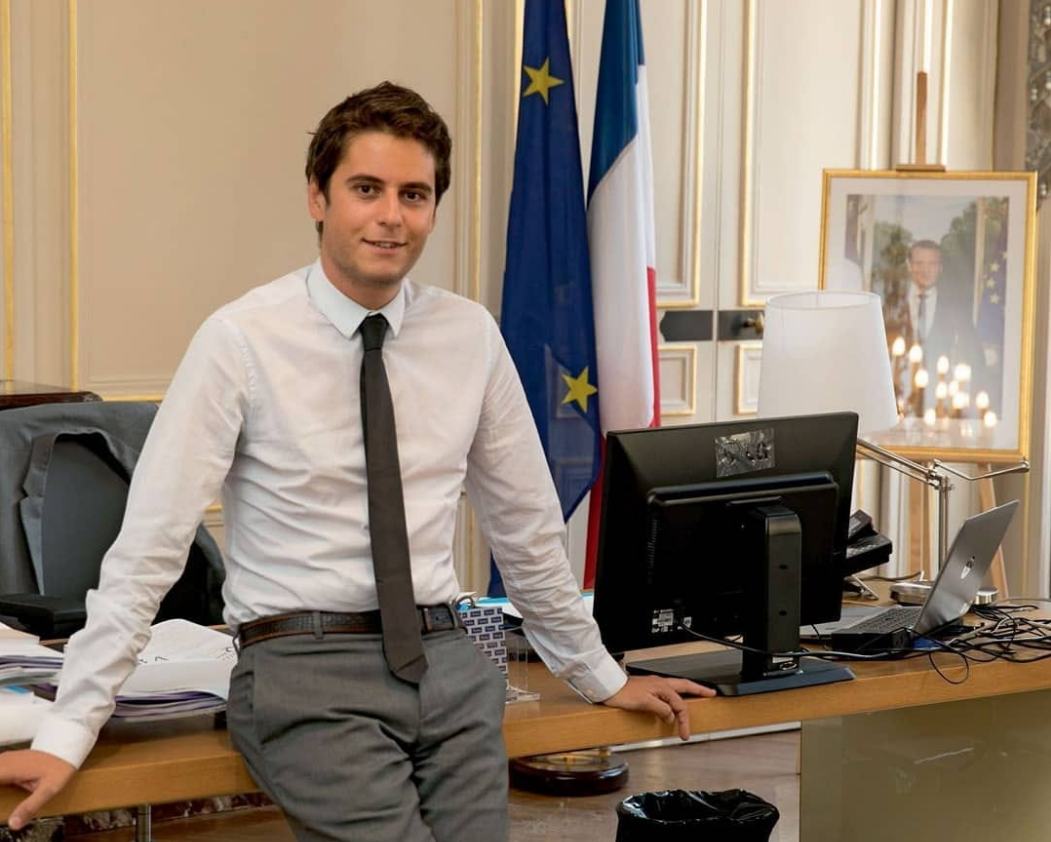
Prime Minister Gabriel Attal in a speech before the National Assembly, the lower house of France’s Parliament, told legislators that “mindsets are evolving” on LGBTQ issues in the country.
In his first keynote address Attal said that France was “tearing itself apart just 10 years ago over same-sex marriage,” he added, whereas “being French in 2024 means … being able to be prime minister and openly gay.” This was “proof our country is moving and mindsets are evolving,” the prime minister noted.
It was the first time the 34-year-old prime minister has referenced his sexual orientation so directly since his installation earlier this month, which was hailed by LGBTQ groups as “a powerful symbol,” Agence France-Presse reported.
But Attal’s sexual orientation has caused barely a ripple in wider French public debate that has more often seen him attacked as a carbon copy of his polarizing boss, French President Emmanuel Macron.
SPAIN
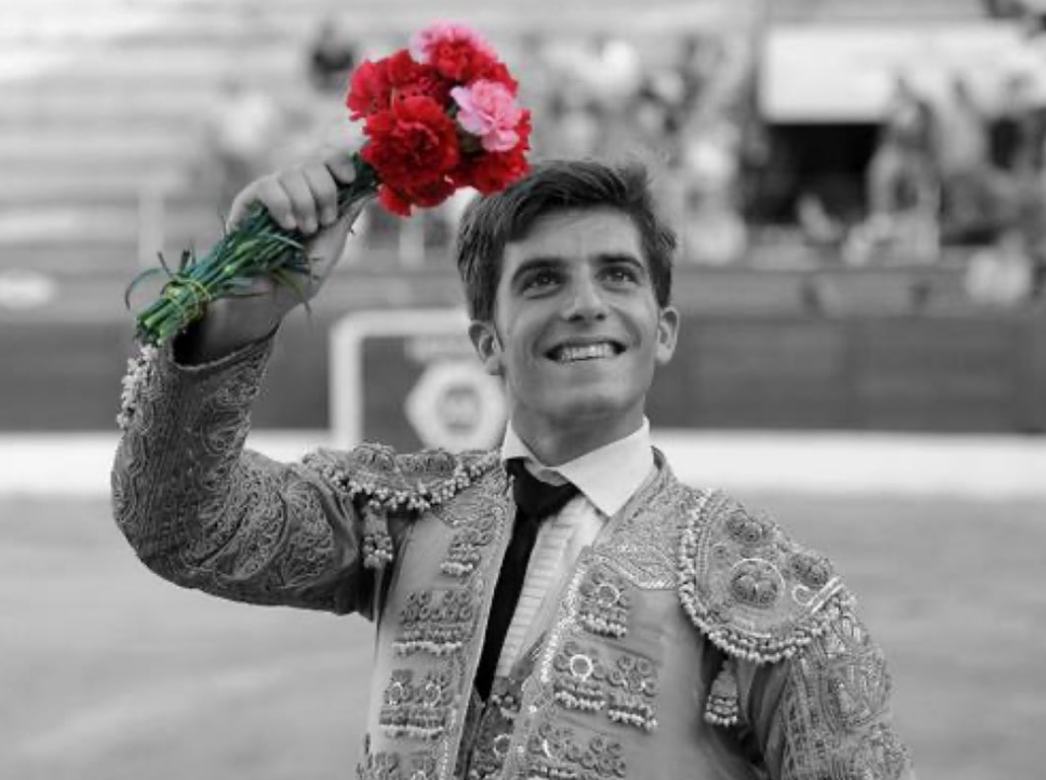
Mario Alcalde made history in the country’s bullfighting sport last month, but not as a matador. The 31-year-old native of Madrid’s Alameda de Osuna neighborhood, where he grew up, revealed in an interview with El Mundo that he identifies as pansexual.
“I’m pansexual. I identify strongly with the LGBTI+ flag. Every person has their taste. I fall in love with the person inside, not their gender,” he said adding, “I follow my own rhythm. My tastes, both political and sexual, are not normal in the bullfighting world.”
Alcalde declined to discuss the politics of being queer further, instead noting his decision to be open about his sexuality and being the first out LGBTQ matador in a sport known for its toxic masculinity occurred after being treated for a dislocated shoulder and broken clavicle after an accident in Madrid’s Las Ventas bullring.
He explained that after a doctor saw he was “wrapped in a rainbow flag dedicated to the Mario Alcalde LGBTQ+ Bullfighting Club” he decided to come out.
Despite confessing that he felt “everyone in the LGBTQ+ community is anti-bullfighting,” the pansexual matador is making it his life’s goal to start a bullfighting club in Madrid’s LGBTQ neighborhood, Chueca.
“Once you confess who you are and the person gets to know you, it’s nice because they begin to see it in a different light,” he said.
“I have to do things so that the community gets involved. They’ll come to watch me fight. At first, they’re very closed minded, there’s too much ignorance and they don’t know what bullfighting is all about.”
He hopes that coming out will not bring negative attention but claims “I don’t care what anyone else thinks.”
In addition to his endeavors in the ring as a matador, he also earns a living as a baggage handler at Adolfo Suárez Madrid–Barajas Airport. “I don’t depend on anyone, that’s why I also work in the airport,” he said.

A painting commissioned by Semana Santa Hermandades, a group of Catholic lay people who organize and perform public religious acts during Seville’s annual Holy Week observances, has drawn severe critique from Spanish conservatives.
The painting, unveiled at the end of January by renowned artist Salustiano García who told the media in attendance at the ceremony that his version of a resurrected Jesus painted against a flat red background was modeled after his son, Horacio.
Spanish social media users derided the work creating memes poking fun at the image or defended the artist, while political conservatives including Pablo Herfelder García-Conde of the ultraconservative Catholic organization Instituto de Política Social labeled the image an “aberration” and a “sexualized and effeminate” Jesus.
Javier Navarro of Spain’s far-right Vox party described the image as a provocation and “homosexual.”
In response to the criticism, the painter told the Spanish newspaper ABC that his portrayal of Jesus was “gentle, elegant and beautiful” and created with “deep respect.”
“To see sexuality in my image of Christ, you must be sick,” he said, insisting there was “nothing” in his painting that “has not already been represented in artworks dating back hundreds of years.”
PORTUGAL
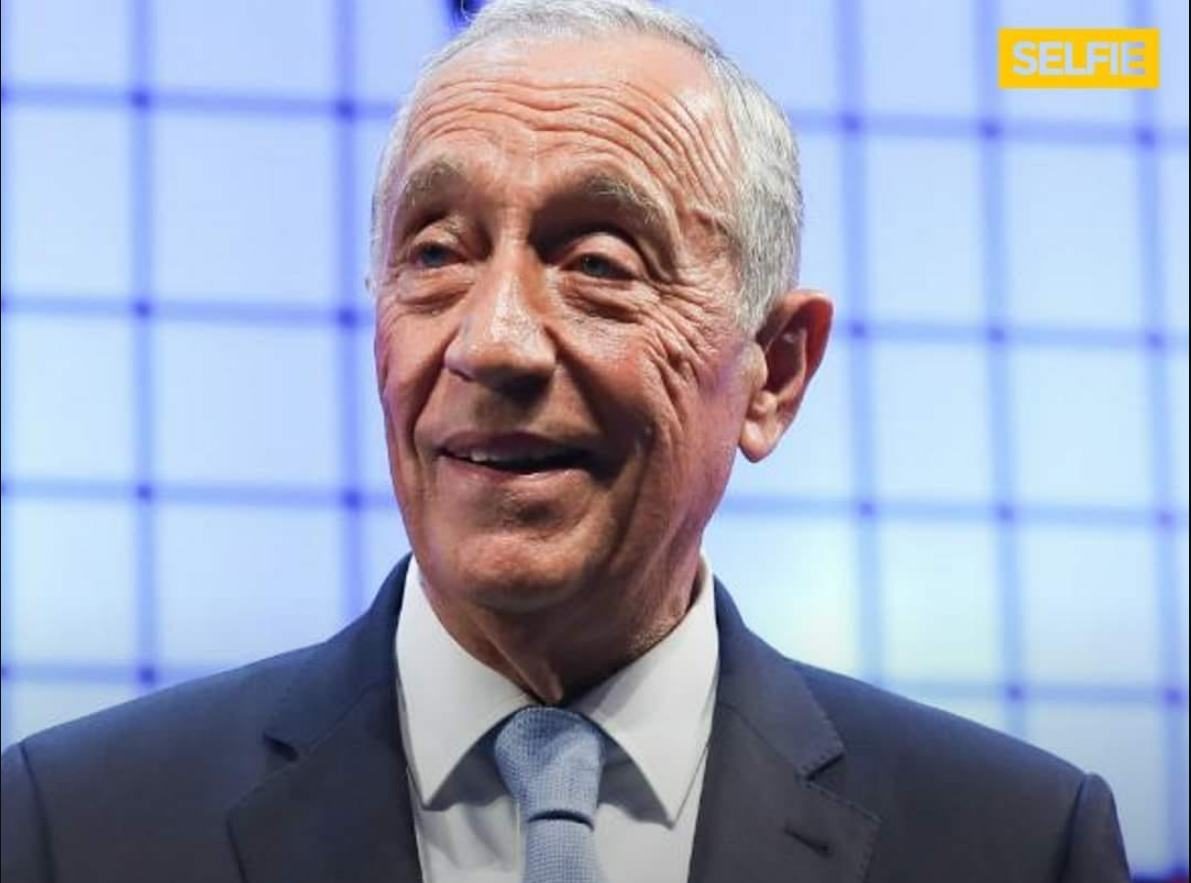
In a statement released on his official website at the end of January, Portuguese President Marcelo Rebelo de Sousa announced that he had vetoed the law that established the measures that schools had to apply to guarantee the right to self-determination of gender identity for students in schools.
De Sousa, a right-leaning conservative, said that he rejected the choice of a neutral name “because it considers that the decree does not guarantee a balance with respect to the essential principle of personal freedom.” He added that law which required schools to adopt to apply the law that establishes gender self-determination “do not sufficiently respect the role of parents, guardians, legal representatives and associations formed by them, nor does it clarify the different situations based on age.
The president returned the law to the Portuguese Parliament to “consider introducing more realism” in an issue in which there is little value in affirming principles that clash, due to their abstract values, with people, families and schools.”
FINLAND
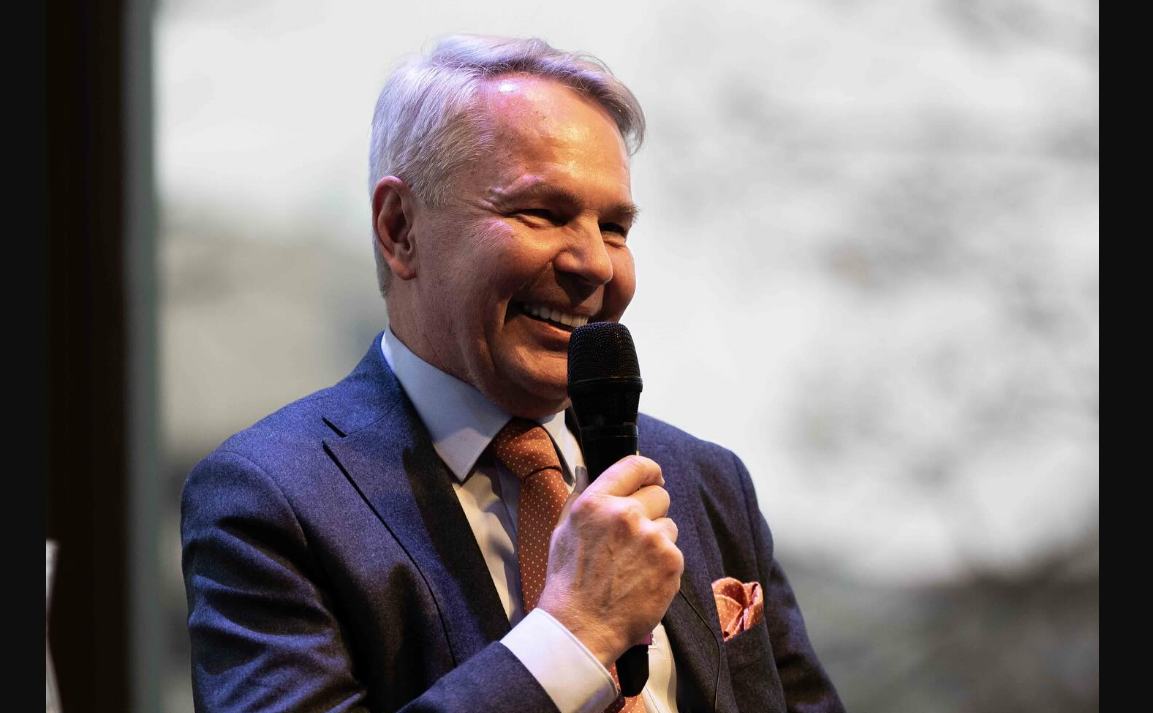
The 65-year-old former Finnish Foreign Minister Pekka Haavisto is now in a tight three-way run off race seeking to become the country’s next president. Haavisto, who is openly gay, has been running as an independent against former Prime Minister Alexander Stubb and Parliamentary Speaker Jussi Halla-aho.
The primary contest, according to Euronews, is between Stubb, who likely gained 27.3 percent of the initial voting and Haavisto at 25.8 percent, in the runoff elections on Feb. 11. Finnish public broadcaster YLE reported Stubb, 55, and Haavisto were the main contenders in the election. About 4.5 million eligible voters picked a successor out of nine candidates to hugely popular President Sauli Niinistö, whose second six-year term expires in March. He wasn’t eligible for re-election. The initial voter turnout was calculated to be 74.9 percent.
The Guardian UK reported that as a part of his campaigning across Finland, Haavisto has previously warned that country must crack down on hate speech against minorities — both as a pressing social issue and a national security issue — he said in other ways he has seen signs of progress during his time on the campaign trail.
“You could see that people could never imagine that gay men could be elected. But this has been changing.”
This is a critical time for the Nordic nation. Finland’s president holds executive power in formulating foreign and security policy. Euronews noted that abandoning decades of military nonalignment in the wake of Russia’s invasion of Ukraine, Finland became NATO’s 31st member in April, much to the annoyance of President Vladimir Putin of Russia, which shares a 832 mile border with the country.
NATO membership, which has made Finland the Western military alliance’s front-line country toward Russia, and the war raging in Ukraine a mere 621 miles away from Finland’s border have boosted the president’s status as a security policy leader.
As foreign minister, Haavisto signed Finland’s historic accession treaty to NATO last year and played a key role in the membership process along with Niinistö and former Prime Minister Sanna Marin.
RUSSIA
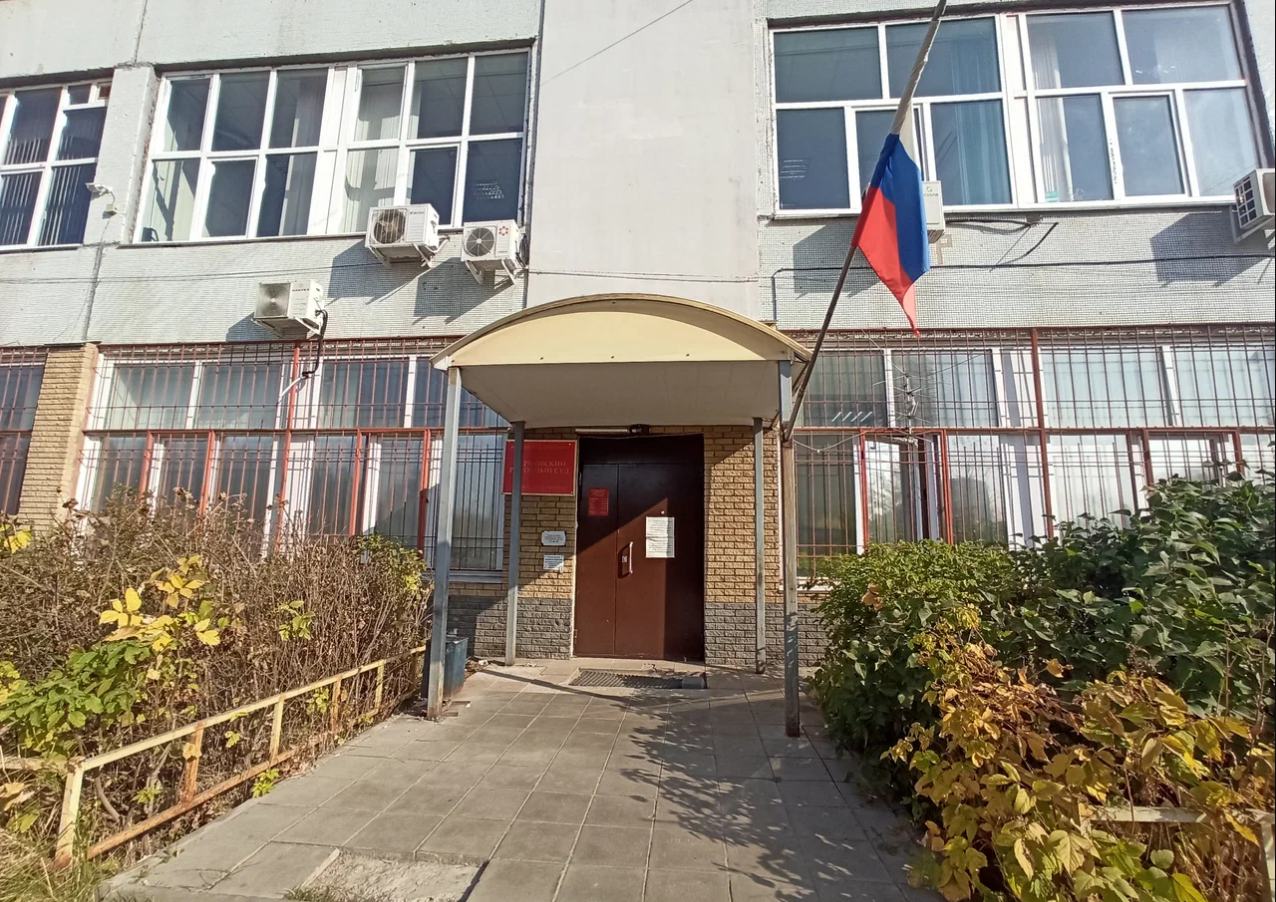
The Sormovskiy District Court in Nizhny Novgorod, a city on the Volga River that is 265 miles east of the Russian capital city, sentenced a woman to five days in jail for wearing earrings in the shape of a frog with a rainbow. This was one of the first two convictions since Russia’s draconian anti-LGBTQ ruling by the country’s Supreme Court
Anastasia Yershova was found guilty by a judge of publicly displaying symbols of an “LGBTQ extremist” organization prohibited under a ruling by Russia’s Supreme Court this past November that “the international LGBTQ movement” is “extremist,” and any symbols including Pride flags would be considered illegal. Yershova’s attorney noted to Shkulev Media that the judge didn’t define “symbol” in handing down his sentence.
According to multiple Russian media outlets, the case against Yershova was brought after an unidentified man threatened to turn her and a companion into the police for wearing a Ukrainian flag pin and rainbow earrings in a public cafe. After she refused the man filmed the encounter and then uploaded the video on Russian social media where it went viral.
Russian security police tasked with combating “extremism” arrested Yershova and brought charges. The press office for the Sormovsky District Court confirmed the account in the charging documents and the sentence but refused further comment.
The Krasnooktyabrsky District Court in Volgograd earlier last week found a man identified only as Artyom P. guilty of “exposing the symbols of an extremist organization” after he had shared a photo of the rainbow flag online in a social media post.
The court’s press office said that the man had pleaded guilty and said he had made a “stupid” gesture. The court stated that he was sentenced to pay a fine of 1,000 rubles ($11.04.)
MALAYSIA
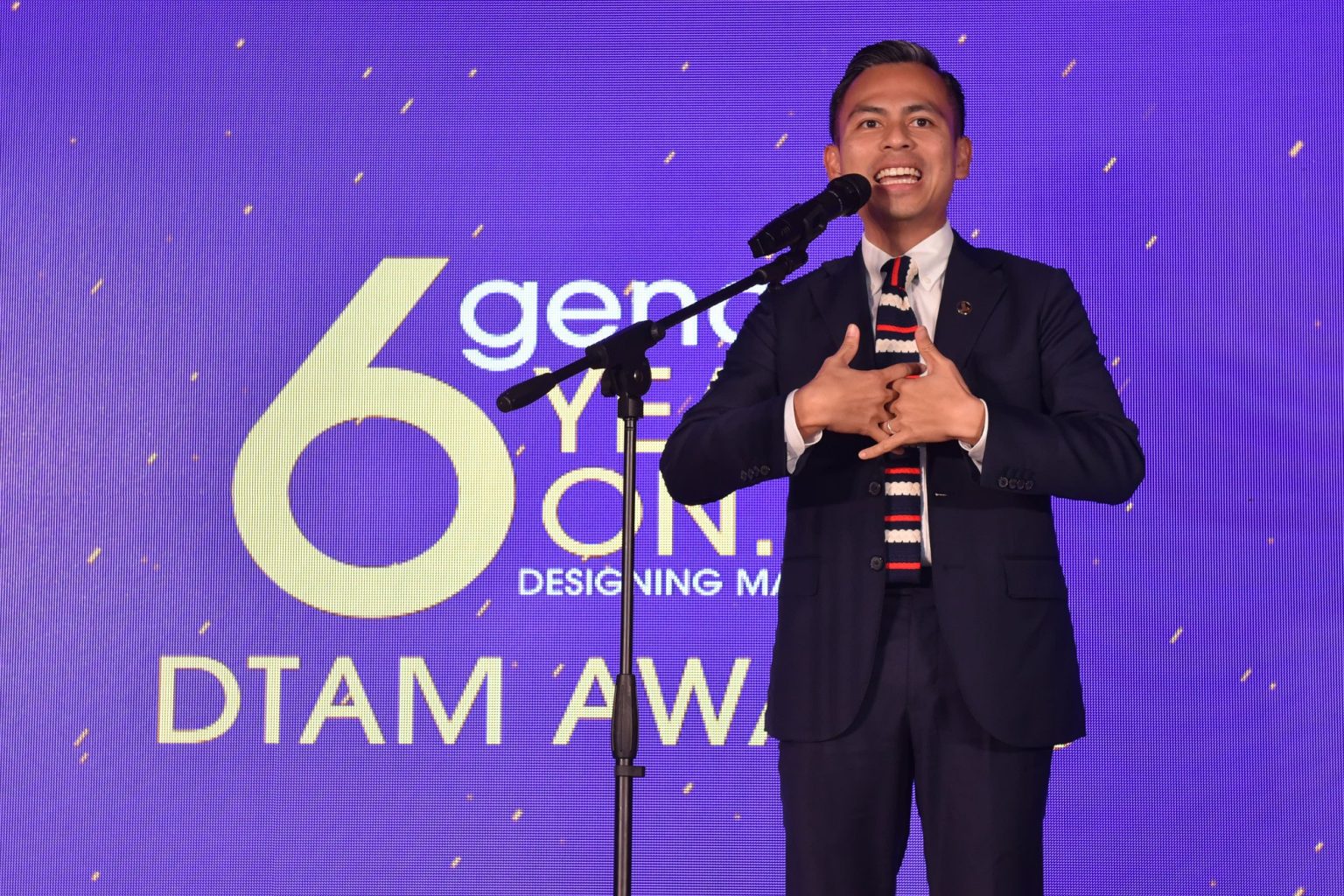
Malaysia’s Communications Minister Fahmi Fadzil told reporters during a press conference this past week that a scheduled concert by British singer-songwriter and musician Ed Sheeran would go on as planned at Kuala Lumpur’s Bukit Jalil National Stadium on Feb. 24.
A senior Muslim cleric and leader in the Malay Archipelago had publicly rebuked the government for issuing permits to Sheeran over the latter’s allyship for the LGBTQ community globally.
“As ‘mufti,’ it is my responsibility to urge the Malaysian government, through the relevant ministries (Communication Ministry and Digital Ministry) to revoke the permit for the concert immediately,” the South China Morning Post reported Wan Salim Mohd Noor said to Sinar Harian, a Malay-language daily newspaper.
Salim said Malaysia, as a nation with a predominantly Muslim population, should not allow concerts featuring artists who support “sinful” activities. He also urged all Muslims in the country to boycott the concert.
The minister told reporters the Islamic Development Malaysia Department and the Home Ministry are involved in discussions to grant approvals for concert permits by foreign acts.
“I have spoken about this to the Central Agency for Application for Filming and Performance by Foreign Artists (Puspal) and I take note of the suggestion by the mufti [Noor] on this,” Fadzil said.
“However, Jakim and the Home Ministry are among the 16 agencies involved in the discussions to approve applications for gigs by foreign artists, through the Puspal committee. Therefore, thorough vetting would have been done by all these agencies,” he said at a press conference on Wednesday.
“We take note of the views but we have a process. We will look into the matter if there is a need. At this time, there are no changes in the approval for the concert.”
Additional reporting by PinkNewsUK, Agence France-Presse, El Mundo/The Olive Press, Rádio e Televisão de Portugal, Euronews, The Guardian UK, Fontanka, the BBC and the South China Morning Post.
Venezuela
AHF client in Venezuela welcomes Maduro’s ouster
‘This is truly something we’ve been waiting for’ for decades

An AIDS Healthcare Foundation client who lives in Venezuela told the Washington Blade he welcomes the ouster of his country’s former president.
The client, who asked the Blade to remain anonymous, on Thursday said he felt “joy” when he heard the news that American forces seized Nicolás Maduro and his wife, Cilia Flores, at their home in Caracas, the Venezuelan capital, during an overnight operation on Jan. 3.
“This is truly something we’ve been waiting for for 26 or 27 years,” the AHF client told the Blade.
Hugo Chávez became Venezuela’s president in 1999. Maduro succeeded him in 2013 after he died.
“I’ve always been in opposition,” said the AHF client, who stressed he was speaking to the Blade in his personal capacity and not as an AHF representative. “I’ve never agreed with the government. When I heard the news, well, you can imagine.”
He added he has “high hopes that this country will truly change, which is what it needed.”
“This means getting rid of this regime, so that American and foreign companies can invest here and Venezuela can become what it used to be, the Venezuela of the past,” he said.
The AHF client lives near the Colombia-Venezuela border. He is among the hundreds of Venezuelans who receive care at AHF’s clinic in Cúcuta, a Colombian city near the Táchira River that marks the border between the two countries.
The Simón Bolívar Bridge on the Colombia-Venezuela border on May 14, 2019. (Washington Blade video by Michael K. Lavers)
The AHF client praised U.S. President Donald Trump and reiterated his support for the Jan. 3 operation.
“It was the only way that they could go,” he said.
The Venezuelan National Assembly on Jan. 4 swore in Delcy Rodríguez, who was Maduro’s vice president, as the country’s acting president. The AHF client with whom the Blade spoke said he is “very optimistic” about Venezuela’s future, even though the regime remains in power.
“With Maduro leaving, the regime has a certain air about it,” he said. “I think this will be a huge improvement for everyone.”
“We’re watching,” he added. “The actions that the United States government is going to implement regarding Venezuela give us hope that things will change.”
Colombia
Colombians protest against Trump after he threatened country’s president
Tens of thousands protested the US president in Bogotá

BOGOTÁ, Colombia — Tens of thousands of people on Wednesday gathered in the Colombian capital to protest against President Donald Trump after he threatened Colombian President Gustavo Petro.
The protesters who gathered in Plaza Bolívar in Bogotá held signs that read, among other things, “Yankees go home” and “Petro is not alone.” Petro is among those who spoke.
The Bogotá protest took place four days after American forces seized now former Venezuelan President Nicolás Maduro and his wife, Cilia Flores, at their home in Caracas, the Venezuelan capital, during an overnight operation.
The Venezuelan National Assembly on Sunday swore in Delcy Rodríguez, who was Maduro’s vice president, as the country’s acting president. Maduro and Flores on Monday pleaded not guilty to federal drug charges in New York.
Trump on Sunday suggested the U.S. will target Petro, a former Bogotá mayor and senator who was once a member of the M-19 guerrilla movement that disbanded in the 1990s. Claudia López, a former senator who would become the country’s first female and first lesbian president if she wins Colombia’s presidential election that will take place later this year, is among those who criticized Trump’s comments.
The Bogotá protest is among hundreds against Trump that took place across Colombia on Wednesday.
Petro on Wednesday night said he and Trump spoke on the phone. Trump in a Truth Social post confirmed he and his Colombian counterpart had spoken.
“It was a great honor to speak with the president of Colombia, Gustavo Petro, who called to explain the situation of drugs and other disagreements that we have had,” wrote Trump. “I appreciated his call and tone, and look forward to meeting him in the near future. Arrangements are being made between Secretary of State Marco Rubio and the foreign minister of Colombia. The meeting will take place in the White House in Washington, D.C.”
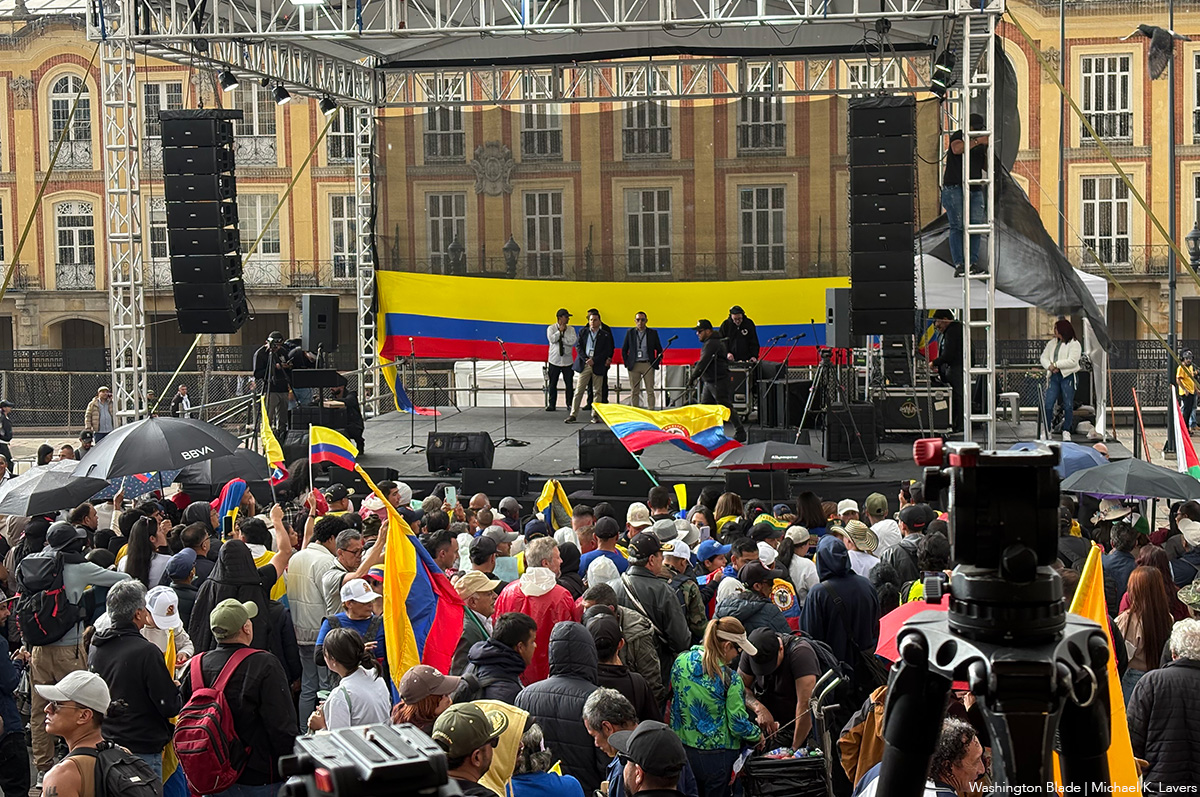
Colombia
Gay Venezuelan man who fled to Colombia uncertain about homeland’s future
Heberth Aguirre left Maracaibo in 2018

BOGOTÁ, Colombia — A gay Venezuelan man who has lived in Colombia since 2018 says he feels uncertain about his homeland’s future after the U.S. seized now former Venezuelan President Nicolás Maduro.
“On one hand I can feel happy, but on the other hand I feel very concerned,” Heberth Aguirre told the Washington Blade on Tuesday during an interview at a shopping mall in Bogotá, the Colombian capital.
Aguirre, 35, is from Maracaibo, Venezuela’s second-largest city that is the heart of the country’s oil industry.
He developed cultural and art initiatives for the Zulia State government.
“Little by little, I suddenly became involved in politics because, in a way, you had to be involved,” recalled Aguirre. “It was necessary to be involved because the regime often said so.”
“I basically felt like I was working for the citizens, but with this deeply ingrained rule we had to be on their side, on the side of the Maduro and (former President Hugo) Chávez regime,” he added.
Maduro in 2013 became Venezuela’s president after Chávez died.
“There are things I don’t support about the regime,” Aguirre told the Blade. “There are other things that were nice in theory, but it turned out that they didn’t work when we put them into practice.”
Aguirre noted the Maduro government implemented “a lot of laws.” He also said he and other LGBTQ Venezuelans didn’t “have any kind of guarantee for our lives in general.”
“That also exposed you in a way,” said Aguirre. “You felt somewhat protected by working with them (the government), but it wasn’t entirely true.”
Aguirre, 35, studied graphic design at the University of Zulia in Maracaibo. He said he eventually withdrew after soldiers, members of Venezuela’s Bolivarian National Guard, and police officers opened fire on students.
“That happened many times, to the point where I said I couldn’t keep risking my life,” Aguirre told the Blade. “It hurt me to see what was happening, and it hurt me to have lost my place at the university.”
Venezuela’s economic crisis and increased insecurity prompted Aguirre to leave the country in 2018. He entered Colombia at the Simón Bolívar Bridge near the city of Cúcuta in the country’s Norte de Santander Province.
“If you thought differently, they (the Venezuelan government) would come after you or make you disappear, and nobody would do anything about it,” said Aguirre in response to the Blade’s question about why he left Venezuela.
The Simón Bolívar Bridge on the Colombia-Venezuela border on May 14, 2019. (Washington Blade video by Michael K. Lavers)
Aguirre spoke with the Blade three days after American forces seized Maduro and his wife, Cilia Flores, at their home in Caracas, the Venezuelan capital, during an overnight operation.
The Venezuelan National Assembly on Sunday swore in Delcy Rodríguez, who was Maduro’s vice president, as the country’s acting president. Maduro and Flores on Monday pleaded not guilty to federal drug charges in New York.
President Donald Trump on Tuesday in a Truth Social post said Venezuela’s interim authorities “will be turning over between 30 and 50 million barrels of high quality, sanctioned oil, to the United States of America.”
“This oil will be sold at its market price, and that money will be controlled by me, as president of the United States of America, to ensure it is used to benefit the people of Venezuela and the United States,” wrote Trump.
Trump on Sunday suggested the U.S. will target Colombian President Gustavo Petro, a former Bogotá mayor and senator who was once a member of the M-19 guerrilla movement that disbanded in the 1990s.
Petro has urged Colombians to take to the streets on Wednesday and “defend national sovereignty.” Claudia López, a former senator who would become the country’s first female and first lesbian president if she wins Colombia’s presidential election that will take place later this year, is among those who criticized Trump’s comments.
“Let’s be clear: Trump doesn’t care about the humanitarian aspect,” said Aguirre when the Blade asked him about Trump. “We can’t portray him as Venezuela’s savior.”
Meanwhile, Aguirre said his relatives in Maracaibo remain afraid of what will happen in the wake of Maduro’s ouster.
“My family is honestly keeping quiet,” he said. “They don’t post anything online. They don’t go out to participate in marches or celebrations.”
“Imagine them being at the epicenter, in the eye of the hurricane,” added Aguirre. “They are right in the middle of all the problems, so it’s perfectly understandable that they don’t want to say anything.”
‘I never in my life thought I would have to emigrate’
Aguirre has built a new life in Bogotá.
He founded Mesa Distrital LGBTIQ+ de Jóvenes y Estudiantes, a group that works with migrants from Venezuela and other countries and internally placed Colombians, during the COVID-19 pandemic. Aguirre told the Blade he launched the group “with the need to contribute to the general population, not just in Colombia.”
Aguirre met his husband, an American from California, at a Bogotá church in December 2020 during a Christmas event that SDA Kinship Colombia, an LGBTQ group, organized. A Utah judge virtually officiated their wedding on July 12, 2024.
“I love Colombia, I love Bogotá,” said Aguirre. “I love everything I’ve experienced because I feel it has helped me grow.”
He once again stressed he does not know what a post-Maduro Venezuela will look like.
“As a Venezuelan, I experienced the wonders of that country,” said Aguirre. “I never in my life thought I would have to emigrate.”
The Colombian government’s Permiso por Protección Temporal program allows Aguirre and other Venezuelans who have sought refuge in Colombia to live in the country for up to 10 years. Aguirre reiterated his love for Colombia, but he told the Blade that he would like to return to Venezuela and help rebuild the country.
“I wish this would be over in five years, that we could return to our country, that we could go back and even return with more skills acquired abroad,” Aguirre told the Blade. “Many of us received training. Many of us studied a lot. We connected with organizations that formed networks, which enriched us as individuals and as professionals.”
“Returning would be wonderful,” he added. “What we’ve built abroad will almost certainly serve to enrich the country.”
-

 National4 days ago
National4 days agoWhat to watch for in 2026: midterms, Supreme Court, and more
-

 District of Columbia5 days ago
District of Columbia5 days agoTwo pioneering gay journalists to speak at Thursday event
-

 a&e features5 days ago
a&e features5 days agoQueer highlights of the 2026 Critics Choice Awards: Aunt Gladys, that ‘Heated Rivalry’ shoutout and more
-

 Colombia5 days ago
Colombia5 days agoBlade travels to Colombia after U.S. forces seize Maduro in Venezuela

